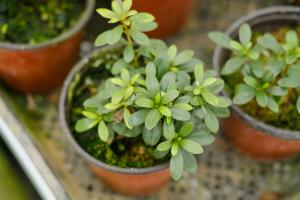Introduction
Mulberry trees are often chosen for their fruit and ornamental qualities, but there are several reasons why planting a mulberry tree may not be the best idea. In this article, we’ll explore some of the main reasons why you should think twice before planting a mulberry tree.
1. Messy Fruits
Mulberries are well-known for their sweet and juicy fruits. However, these fruits can be quite a nuisance to deal with. Mulberries often fall from the tree and stain anything they come into contact with - including pavement, cars, and clothing. This can become quite problematic if you have a lot of foot traffic near the tree or if you park your car nearby.
2. Invasive Roots
Mulberry trees have a tendency to develop invasive root systems over time. These roots can cause damage to sidewalks, driveways, and buildings. They may also compete with other nearby plants for nutrients and water, making it difficult for other plants to thrive. In some cases, the roots may even invade pipes and septic systems, leading to costly repairs.
3. Messy Leaves
In addition to messy fruits, mulberry trees also have messy leaves. The leaves of the mulberry tree have a tendency to drop throughout the year, creating a year-round mess in your yard or garden. This can make it difficult to keep your outdoor spaces looking neat and tidy.
4. Allergies
Mulberry trees are infamous for causing allergies in some people. The pollen from the tree can trigger allergic reactions, such as sneezing, itchy eyes, and runny nose. If you or anyone in your household suffers from allergies, it’s best to avoid planting a mulberry tree.
5. Invasive Species
Mulberry trees are not native to all parts of the world, and in some areas, they have become invasive. When planted in areas outside their natural range, mulberry trees can outcompete native plants and disrupt local ecosystems. This can have a negative impact on wildlife and even threaten the survival of endangered species.
Conclusion
While mulberry trees may have some desirable qualities, such as their sweet fruit and ornamental appearance, they come with some downsides as well. From the messiness of their leaves and fruits to their invasive root systems, there are several reasons why planting a mulberry tree may not be the best idea. Remember to carefully consider the potential drawbacks before deciding to plant one in your yard or garden.

 how many times do yo...
how many times do yo... how many planted tre...
how many planted tre... how many pine trees ...
how many pine trees ... how many pecan trees...
how many pecan trees... how many plants comp...
how many plants comp... how many plants can ...
how many plants can ... how many plants and ...
how many plants and ... how many pepper plan...
how many pepper plan...































